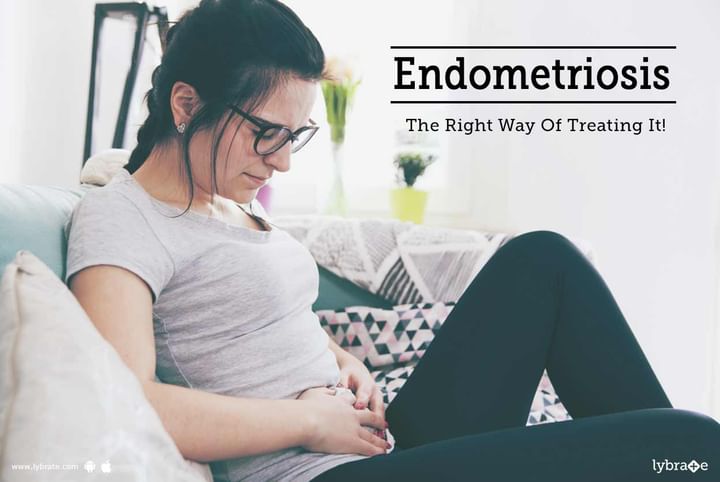Endometriosis - The Right Way Of Treating It!
The abnormal growth of the endometrium tissue outside the uterus is known as endometriosis. Ideally, the abnormal tissue is supposed to break down and exit the body. However, in this condition, the tissue is unable to pass out of the body. As a result, the surrounding tissue tends to get irritated and leads to the formation of scar tissues.
The various causes of endometriosis include:
- Immune system disorder: Complications in the immune system might render it incapable of destroying the endometrial tissue that grows outside the uterus.
- Surgical scar implantation: Certain surgeries such as a C-section may result in the attachment of endometrial cells to the incision area.
- Embryonic cell transport: These cells may be transported to other parts of the body by the blood vessels which may lead to endometriosis.
- Retrograde menstruation: Instead of passing out of the body, under this condition, the blood flows back into the pelvic region via the fallopian tubes. When these cells attach themselves to the pelvic cavity, it causes endometriosis.
Symptoms
- Pain during sexual intercourse
- Pain during periods including pelvic pain, especially during periods, lower back pain and abdominal pain.
- Excessive bleeding during periods
- Fatigue
- Constipation
- Bloating
The major complication that results is fertility problems. Endometriosis may prevent the combination of the egg and the sperm and thus, impairs your ability to conceive. It is recommended not to delay pregnancy if you have endometriosis. This disorder also tends to increase the risk of ovarian cancer in some women.
How can it be treated?
Endometriosis is usually done using surgery or medications.
- Medication: It usually involves painkillers.
- Hormone therapy: Some of the hormonal therapies include:
- Hormonal contraceptives
- Progestin therapy
- Gonadotropin-releasing hormone (Gn-RH) agonists and antagonists
- Conservative surgery: If a patient wants to become pregnant, surgery is done as much as possible without harming the uterus and ovaries. Suggested procedures include laparoscopy and traditional abdominal surgery.
- Assisted reproductive technologies: An example of this form of treatment is In Vitro Fertilization.
- Hysterectomy: Under severe circumstances, total hysterectomy is conducted in order to facilitate the removal of cervix and uterus.
In case you have a concern or query you can always consult an expert & get answers to your questions!



+1.svg)
